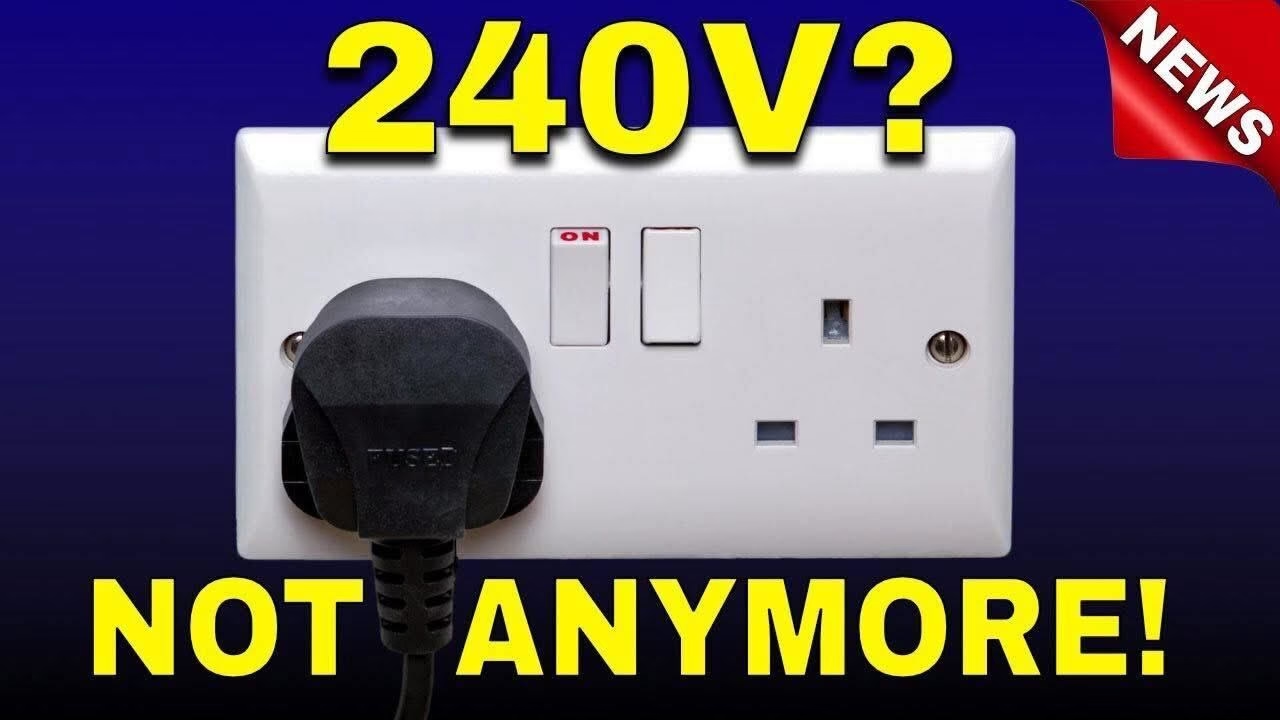- October 30, 2025
- By RecurAdmin
- Blog

As the UK moves toward a cleaner, greener energy future, there’s growing talk about lowering the national supply voltage to help make room for more renewable power such as solar energy and wind generation.
At first glance, that might sound like a small technical tweak — but if the national grid were to lower the supply voltage to 207 volts, it could have a real impact on older wiring systems, fuseboards, and appliances across millions of UK homes.
What’s being proposed
Right now, UK households receive electricity at a nominal voltage of 230 V, with a permitted variation of +10 % to –6 %.
That means your supply must legally stay between 216 V and 253 V, according to the Electricity Safety, Quality and Continuity Regulations (ESQCR).
If the lower tolerance were widened to –10 %, the range would become 207 V to 253 V — matching European standards but requiring a change in UK law and regulations.
The National Grid and Ofgem are exploring this idea because it would make the network more flexible and create extra headroom for renewable generation. In simple terms, lowering the supply voltage allows more homes to feed solar energy back into the grid without overloading it.
Why the grid might lower voltage
- More capacity for renewables – Solar PV and home battery systems can export more energy before tripping off for over-voltage.
- Improved efficiency – Lowering the overall grid voltage can help reduce energy losses in cables and transformers.
- Future-proofing – It prepares the grid for the growing number of electric vehicles, solar panels, and battery storage systems across the UK.
But for homes with aging wiring or older fuseboards, a reduction to 207 volts could reveal weaknesses that have gone unnoticed for years.
How older installations could be affected
Many homes around Chester, Ellesmere Port, and North Wales still use electrical systems designed decades ago — when 240 V was the UK standard. These installations often rely on older fuses and wiring that behave differently under lower supply voltages.
Slower tripping and safety issues
Older BS 3036 rewireable fuseboards and early MCBs (circuit breakers) were calibrated for higher voltages.
If the supply drops to 207 V, fault currents are lower, meaning fuses and breakers can take longer to trip — increasing the risk of overheating or fire.
RCD reliability
Some early RCDs (residual current devices) were voltage dependent. If voltage drops too far, they may not operate as intended during a fault, leaving circuits unprotected.
Voltage drop on old wiring
Aged cables — especially long runs to outbuildings, garages or upstairs sockets — may already lose voltage along their length.
If the incoming supply itself starts lower, end-point voltages could fall below safe operating levels for modern appliances.
Appliance performance
Heaters, cookers and motors designed for 240 V will run cooler or less efficiently at 207 V.
Some appliances draw higher current to compensate, which can overheat cables or trip weak protective devices.
It could become law — but not without change
Moving from the current –6 % lower limit to –10 % would mean:
- Updating ESQCR (Electricity Safety, Quality and Continuity Regulations).
- Aligning with BS EN 50160 (European voltage standards).
- Reviewing sections of BS 7671 that relate to voltage drop, cable sizing and disconnection times.
That means any national rollout would take years to approve and implement — but discussions are already happening within the energy sector.
Why it pays to upgrade early
If the UK does move toward a 207 V lower limit, there will be a nationwide push to modernise older electrical systems.
Consumer unit upgrades, RCD replacements and rewiring work would suddenly be in high demand — and as with any industry, a surge in demand means higher prices.
Upgrading your home’s electrics before such a change could actually save you money in the long run.
Modern consumer units with RCBO protection and properly rated cabling are built to handle a wider voltage range safely and efficiently — ensuring your home stays compliant and protected whatever the grid decides to do next.
How Gerrard’s Electrical Solutions can help
At Gerrard’s Electrical Solutions, we specialise in:
- Consumer unit upgrades – Replace old fuseboards with modern, RCBO-protected units that meet the latest BS 7671 standards.
- Full and partial rewires – Update tired wiring to improve safety, efficiency, and compliance with future regulations.
- Electrical inspections – Identify weaknesses before they become faults, and ensure your home is ready for future grid changes.
If your property still has an older fuseboard or original wiring, now is the time to act.
A professional upgrade today could avoid inflated prices later — and give you peace of mind that your home is safe, compliant, and future-ready
Ready to modernise your electrics?
Contact Gerrard’s Electrical Solutions today for a no-obligation quote on:
- Consumer unit upgrades
- Rewires
- EICR inspections
Serving Chester, Ellesmere Port, and North Wales, we’re your trusted local family-run electricians — helping homes stay safe and compliant for the future grid.